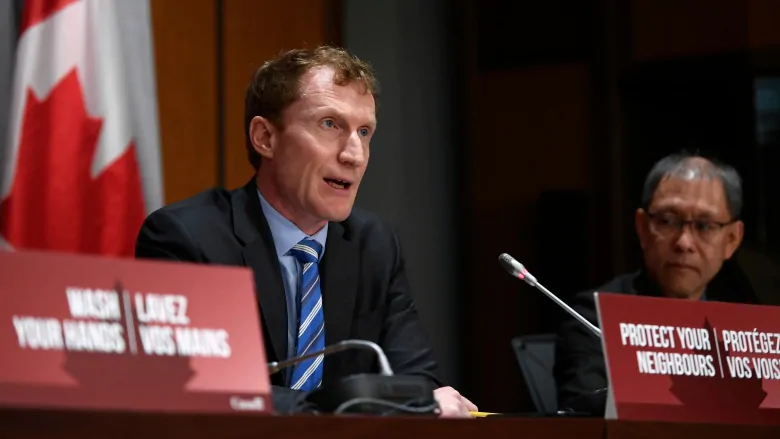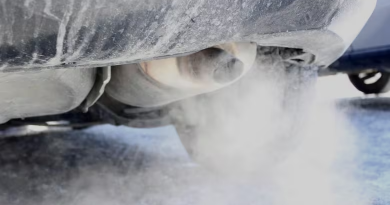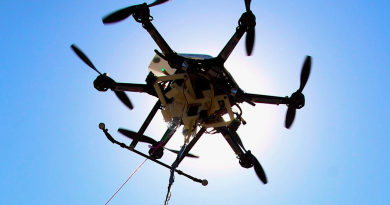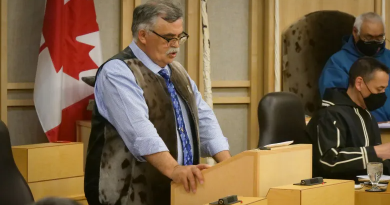Canada announces new COVID-19 funding for Inuit communities

The federal government is making an additional $650 million available for Indigenous communities to deal with current COVID-19 needs and prepare for a potential second wave of the pandemic, said Indigenous Services Minister Marc Miller on Friday.
The new funding will go toward the public health response to the pandemic, the on-reserve income assistance program and the construction of new women’s shelters.
Miller announced the new funding during a news conference in Ottawa on Friday. He said it would enable Indigenous communities to react to the “evolving needs” caused by the ongoing pandemic.
“These funds enable us to live up to our obligation to provide quality care and support them, especially so in times of crisis,” said Miller.
Indigenous Services Canada has made over $1.3 billion available to Indigenous communities to deal with pandemic-related needs since mid-March.
Miller said that as of Friday, 176 of the 214 on-reserve COVID-19 cases had recovered and all 16 cases in Inuit communities in northern Quebec had also recovered.
Of the new money announced Friday, $285 million will be earmarked to bolster the health care response in Indigenous communities. The funds will be used to increase the number of nurses on the front lines, obtain more personal protective equipment and for setting up isolation centres, either through temporary structures or to retrofit existing buildings for community medical needs.
“I know everyone is concerned about a second wave, and we are acting,” said Miller.
The funding will be used to bolster the surge health capacity of Inuit organizations should provincial and territorial governments face pressure on their health services in the face of an outbreak in Inuit communities in the Northwest Territories, Nunavut, Quebec and Newfoundland and Labrador, according to Miller.
Watch | Miller questioned about Saskatchewan First Nations plans to secure own supply of PPE
Income assistance program gets boost
The on-reserve income assistance program is also getting an additional $270 million boost under the funds announced Friday.
“No one should have to choose between clothing their children or electricity for the next week,” said Miller.
“No one should be faced with the choice with a roof above their heads or food for their families, but too often this is the case.”
Miller said $139 million of the total is in direct response to COVID-19 and the rest of the funding will go toward bolstering the base funding for the program.
Twelve new women’s shelters will also be constructed with the funds announced Friday, Miller said. The federal government will spend $44.8 million over five years for 10 new on-reserve shelters and two in the territories, said Miller.
The new shelters will also get $40.8 million to support the operation of these new shelters for the first five years, plus $10.2 million a year, ongoing.
Miller said $1 million will also be invested yearly, beginning in 2020, for anti-violence projects for Métis women, girls, LGBTQ and two-spirit people.
Related stories around the North:
Arctic: Roundup of COVID-19 responses around the Arctic, Eye on the Arctic
Canada: COVID-19 amplifying economic stress on First Nations, Inuit and Métis in urban Canada, CBC News
Greenland/Denmark: COVID-19 could delay Kingdom of Denmark’s Arctic strategy, Eye on the Arctic
Finland: Sweden seen as major source of COVID-19 in Western Finland region, Yle News
Iceland: Iceland talks COVID-19 with Canada, Greenland foreign ministers, Eye on the Arctic
Norway: Growing concern among Nordic officials over increased Arctic border traffic, The Independent Barents Observer
Russia: Closed military naval town in Russian Arctic sees major increase in COVID-19 cases, The Independent Barents Observer
Sweden: Covid-19 deaths top 4,000 but overall situation in Sweden ‘getting better’, Radio Sweden
United States: COVID-19 pandemic raises hard questions about health disparities, says Int’l Inuit org, Eye on the Arctic



